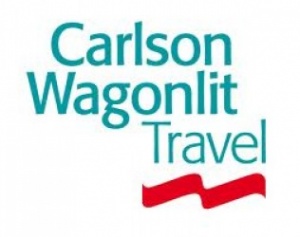CWT reveals trends and priorities for 2012

Carlson Wagonlit Travel (CWT) today published its Travel Management Priorities for 2012 report, based on an international survey of 290 travel managers. The report highlights the main changes likely to affect travel programmes and looks at global trends and differences between regions.
Travel managers’ top four priorities focus on cost control
The top four priorities for travel managers in 2012 concentrate on driving air and ground transport savings, improving travel compliance, optimising hotel spend and online adoption. In an evolving market, these areas represent opportunities even for the most mature travel programmes. To achieve these objectives, travel managers use a wide range of measures, including improving communications on travel policy and compliance (previous CWT research[1] shows that only 50% of travellers are familiar with their company’s travel policy), helping employees to better understand online booking processes, and mandating the use of preferred suppliers. Communication on preferred suppliers and booking channels will be particularly important as travellers use mobile applications more and more.
Nick Vournakis, VP Global CWT Solutions Group explains, “We are expecting the travel spend to be even more complex in 2012 – additional fees, surcharges and credit card booking fees charged by airlines and other suppliers are making it very difficult for buyers to efficiently and accurately compare the full cost of travel between suppliers.”
The 2012 Travel Management Priorities:
1. Driving air and ground transportation savings – 63% of respondents (no. 3 in 2011)
2. Improving traveller compliance – 68% of respondents (no. 1 in 2011)
3. Optimising hotel spend – 60% of respondents (no. 4 in 2011)
4. Optimising online adoption – 56% of respondents (no. 2 in 2011)
5. Optimising the travel policy – 42% of respondents (no. 6 in 2011)
6. Enhancing the traveller experience – 39% of respondents (no. 5 in 2011)
7. Developing key performance indicators – 34% of respondents (no. 7 in 2011)
8. Further consolidating the travel programme – 33% of respondents (no. 9 in 2011)
9. Addressing safety and security needs – 27% of respondents (no. 8 in 2011)
10. Tackling meetings and events – 22% of respondents (no. 10 in 2011)
11. Making the programme more environmentally friendly – 12% of respondents (no. 11 in 2011)
ADVERTISEMENT
Travel managers’ priorities and planned measures vary according to region
CWT research pinpointed some variations in results, depending on the region in which travel managers are based. For example, travel managers in Asia Pacific place a greater focus on optimising hotel spend compared to other regions, reflecting the challenges they face with particularly high occupancy rates in this market. With the number one priority for Europe, Middle East and Africa being air and ground transport savings, one of the measures travel managers are planning is managing the trade-offs between air and rail as high-speed rail networks expand. Travel managers in Latin America also accord the highest importance to driving air and ground savings. Meanwhile, North American travel managers cite traveller compliance—an ongoing challenge—as the number one priority.
Commenting on the current business travel climate, Christophe Renard, VP CWT Strategic Marketing and Business Intelligence stated, “In 2012, moderate price increases are expected on the whole, with some stronger variations between countries and travel categories. This cautious market context is reflected in travel managers’ priorities, which focus largely on cost control in all regions.”
In an uncertain economic environment, travel managers need to monitor changes closely to ensure they are getting the best deals from suppliers and the right performance from their travel programme. The CWT report also highlights key market trends affecting travel programmes worldwide in the coming year, such as the continued growth in travel spend for Asia Pacific, the increasing use of mobile solutions in business travel and the sharp uptake in a strategic approach to meetings management.

